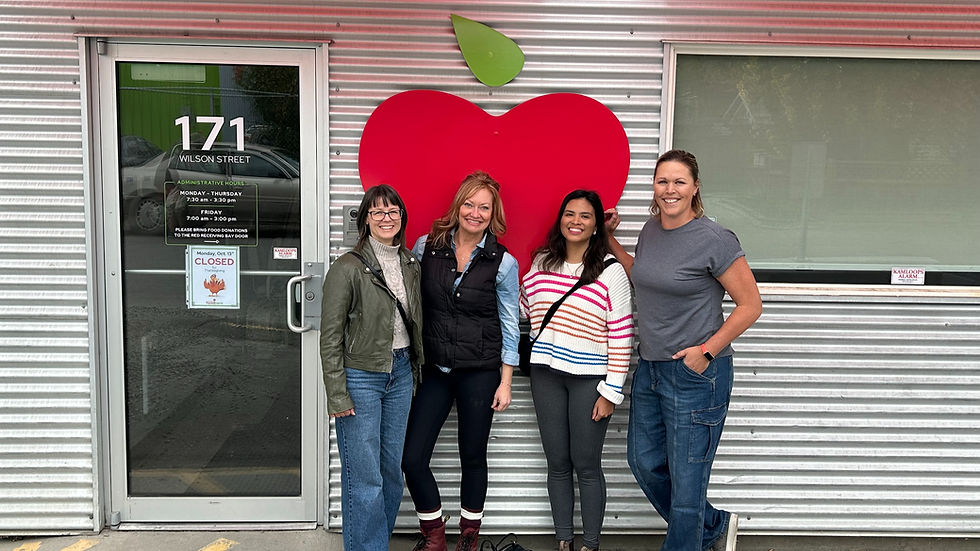What to Expect When you are Expecting to Write Your First Grant Proposal
- Amplify Consulting
- May 1, 2023
- 3 min read
So, you want to find funding. Trust me when I say, it’s a competitive world, and those grant opportunities may be more over-subscribed than you have been led to believe. Where does one even begin? The first step is to describe your goal. Make a bullet list, brainstorm, and your goal will evolve under examination. Coherence between your goal and your current situation is essential before searching for a funding source.

The best place to start when searching for grants is locally or through organizations whose mission is related to your own. Visit your city and regional district’s websites. Industry leaders and institutions, like banks, corporations and universities, may also offer grants. One of your first searches should be the Canadian Government’s website. Federal funding supports culture, history, sports, science and innovations, arts and Indigenous peoples. There are also reputable subscription services like Foundation Search and Imagine Canada to explore.
What do funders look for?
It may be the word du jour, but sustainability counts for grant writing too. Funders want to see their contribution supporting a project that has a long-term sustainable impact and improves the standard of life. If your goal is to build capacity, will you create permanent jobs that pay a living wage?
Your funder will require a concise description of the project and concrete data, not opinion, to support the context you are describing in your proposal. Be prepared to do some research. Your proposal must define your demographic and the community your project will serve. The grant application will also ask for data that supports your project, which might be what prior work or studies have been done that relate to your project.
The criteria funders use to assess applications and the weight they attribute to those criteria will differ. For example, one grant might prioritize a project that leverages funding from multiple sources and in-kind contributions, while another by a project’s degree of readiness.
Writing your Proposal
Read and re-read the Request for Proposal (RFP). Does your project match the fund’s goal? Is your project eligible? Funders may offer info-sessions and application guides to support your application submission. Build a relationship with your funder, introduce yourself, describe your project, and ask how they weigh their assessment criteria, but refrain from posing questions that are answered in the RFP.
Helpful Tip: Start the administrative process early. Your proposal will require documentation, including letters of support and budgets. Develop a workback schedule and clear timelines. For example, you should allocate three to four weeks to acquire letters of support. Gather your supporting documents in phases and follow up regularly; the producer of these documents is not responsible for your deadline.
Helpful Tip: Letters of support should be individualized. Avoid standard form letters. Read more about letters of support here.

Helpful Tip: Get a blank calendar and work backward from the deadline, adding all holidays. You want to add flexibility to your timeline for surprises, problems or delays.
Break down your proposal into steps. Keep your goal in mind. What are you trying to do? Why is this important to the project? How will you accomplish these steps? Your how is your outcome, so outline this process in terms of individual tasks. When you add a timeline to the description of these tasks, they become deliverables.
Be aware of your tone. Be engaging! Show the funder what is special and unique about your organization.
Be Prepared for Reporting
Congratulations, you wrote a successful grant proposal! Now your obligation to your funder begins. Your organization must have the capacity to administer the grant. Administration of the grant may entail any or all of the following; providing interim reports, a final report, submitting a last claim with associated expense receipts, and participating in periodic program review meetings. You must be transparent about how you utilize grant money.
Helpful Tip: Funders do not like when you are under budget.

Goodluck!
The pre-requisite deadlines and many moving parts involved in grant writing mean that drafting a successful proposal depends on planning, excellent organizational skills, and good communication. Collaboration within your organization, between partners and the funder, is essential. Funding is out there; it’s up to you to get it. If you are looking for assistance, we welcome you to give our team at call to assist you with your grant application. – Amy
Amy Cline is a researcher and grant writer with Amplify Consulting Inc.








Comments